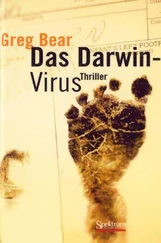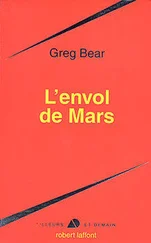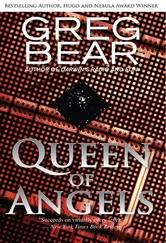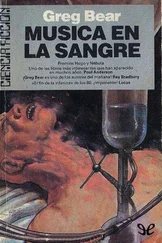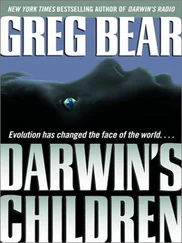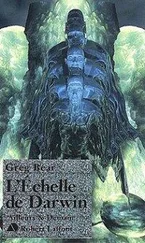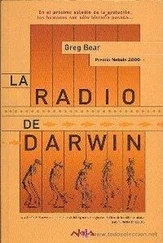Maybe this was just what she needed.
“I’ll call that attorney,” Kushner said. Then, to Cross, she said, “I’d like to speak to Kaye alone for a few minutes.”
“Of course,” Cross said.
In the kitchen, Judith Kushner took Kaye by the arm and looked at her with a fixed fierceness Kaye had rarely seen in her.
“You realize what’s going to happen,” she said.
“What?”
“You’re going to be a figurehead. You’ll spend half your time in big rooms talking to people with expectant smiles who’ll tell you to your face whatever you want to hear, and then gossip behind your back. You’ll be called one of Marge’s pets, one of her waifs.”
“Oh, really,” Kaye said.
“You’ll think you’re doing great work and then one day you’ll realize she’s had you doing what she wants, and nothing else, all along. She thinks this is her world, and it works by her rules. Then someone will have to come along and rescue you, Kaye Lang. I don’t know if it could ever be me. And I hope for your sake there will never be another Saul.”
“I appreciate your concern. Thank you,” Kaye said quietly, but with a touch of defiance. “I work by my instincts, too, Judith. And besides, I want to find out what Herod’s is all about. That won’t be cheap. I think she’s right about the CDC. And what if we can…finish our work with Eliava? For Saul. In his memory.”
Kushner’s intensity melted and she braced herself against the Wall, shaking her head. “All right.”
“You make Cross sound like the devil,” Kaye said.
Kushner laughed. “Not the devil. Not my cup of tea, either.”
The kitchen door swung open and Debra Kirn entered. She glanced between them nervously, then, pleading, said, “Kaye, it’s you she wants. Not me. If you don’t come on board, she’ll find some way to dump my work…”
“I’m doing it,” Kaye said, waving her hands. “But my God, I can’t leave right now. The house—”
“Marge will take care of that for you,” Kushner said, as if having to tutor a slow student on a subject she did not herself enjoy.
“She will,” Kirn affirmed quickly, her face lighting up. “She’s amazing.”
29
Taskforce Primate Lab, Baltimore
FEBRUARY
“Good morning, Christopher! How’s the continent?” Marian Freedman held open the back door at the top of the concrete steps. A very cold wind rushed down the alley. Dicken pulled up his knitted scarf and made a point of rubbing one bleary eye as he climbed the steps.
“I’m still on Geneva time. Ben Tice sends his regards.”
Freedman saluted briskly. “Europe on the case,” she called out dramatically. “How is Ben?”
“Dead tired. They did coat proteins last week. Tougher than they thought. SHEVA doesn’t crystallize.”
“He should have talked to me,” Marian said.
Dicken took off his scarf and coat. “Got some hot coffee?”
“In the lounge.” She guided him down a concrete corridor painted a bizarre orange and motioned him through a door on the left.
“How’s the building?”
“It sucks. Did you hear the inspectors found tritium in the plumbing? This was a medical waste processing facility last year, but somehow or other, they got tritium in their pipes. We didn’t have time to object and start looking again. What a market! So…It costs us ten grand to put in monitors and retrofit. Plus we have to guide a radiation inspector from the NRC through the building with his sniffer every other day.”
Dicken stood by a bulletin board in the lounge. The board was divided into two sections, one a large whiteboard, the smaller, on the left, a corkboard studded with notices. “Wanted to share: cheaper apartment!” “Can someone pick up my dogs in quarantine at Dulles next Wednesday? I’m on all day.” “Anyone know day care in Arlington?” “Need a ride to Bethesda Monday. Someone from metabolic or excretion preferred: we need to talk anyway.”
His eyes misted over. He was tired, but seeing the evidence of this thing coming alive, of people coming together, moving families and changing lives, traveling from around the world, deeply affected him.
Freedman handed him his coffee in a foam cup. “It’s fresh. We do good coffee.”
“Diuretic,” he said. “Should help you shed that tritium.”
Freedman made a face.
“Have you induced expression?” Dicken asked.
“No,” Freedman said. “But simian scattered ERV is so close to SHEVA in its genome that it’s scary. We’re just proving what we already assumed: this stuff is old. It entered the simian genome before we and the vervets parted ways.”
Dicken drank his coffee quickly and wiped his mouth. “Then it isn’t a disease,” he said.
“Whoa. I didn’t say that.” Freedman took his cup and disposed of it for him. “It expresses, it spreads, it infects. That’s a disease, wherever it comes from.”
“Ben Tice has analyzed two hundred rejected fetuses. Every single one of them contained a large follicular mass, similar to an ovary but containing only about twenty follicles. Every single one—”
“I know, Christopher. Three or fewer erupted follicles. He sent me his report last night.”
“Marian, the placentas are tiny, the amnion is just a thin little sack, and after the miscarriage, which is incredibly easy — many of the women don’t even feel pain — they don’t even shed their endometrium. It’s as if they’re still pregnant.”
Freedman was becoming very agitated. “Please, Christopher—”
Two other researchers, both young black men, came in, recognized Dicken, though they had not yet met, nodded greetings, then went to the refrigerator. Freedman lowered her voice.
“Christopher, I am not going to stand between you and Mark Augustine when the sparks fly. Yes, you’ve shown that the Georgian victims had SHEVA in their tissues. But their babies were not these misshapen egg-case things. They were normally developing fetuses.”
“I would love to get one of them for analysis.”
“Take it somewhere else, then. We are not a criminal lab, Christopher. I’ve got one hundred and twenty-three people here and thirty vervets and twelve chimpanzees and we are dedicated to a very focused mission. We are exploring endogenous virus expression in simian tissues. That’s it.” She spoke these last words in a low whisper to Dicken near the door. Then, more loudly, “So come and take a look at what we’ve done.”
She led Dicken through a small maze of cubicle offices, each with its own little flat-screen display. They passed several women in white lab coats and a technician in green overalls. The air smelled of antiseptic until Marian opened the steel door to the main animal lab. Then, Dicken smelled the old-bread smell of monkey chow, the tang of urine and feces, and again, the smells of soap and disinfectant.
She brought him into a large concrete-walled room with three female chimpanzees, each in separate sealed plastic and steel enclosures. Each enclosure was supplied with air by its own ventilation system. A lab worker had inserted a bar clamper into the nearest enclosure, and the chimp was busily trying to push past the restraining steel posts. Slowly, the clamper closed, ratcheted down by the worker, who waited, whistling tunelessly, as the chimp finally acquiesced. The clamper held her almost flat; she could no longer bite, and only one arm waved through the bars, away from where the lab technician was going to do her work.
Marian watched, face blank, as the restrained chimp was withdrawn from the enclosure. The clamper swung around on rubber wheels and a technician took blood and vaginal swabs. The chimp shrieked protests and grimaced. Both the worker and the technician ignored her shrieks.
Читать дальше
Конец ознакомительного отрывка
Купить книгу

